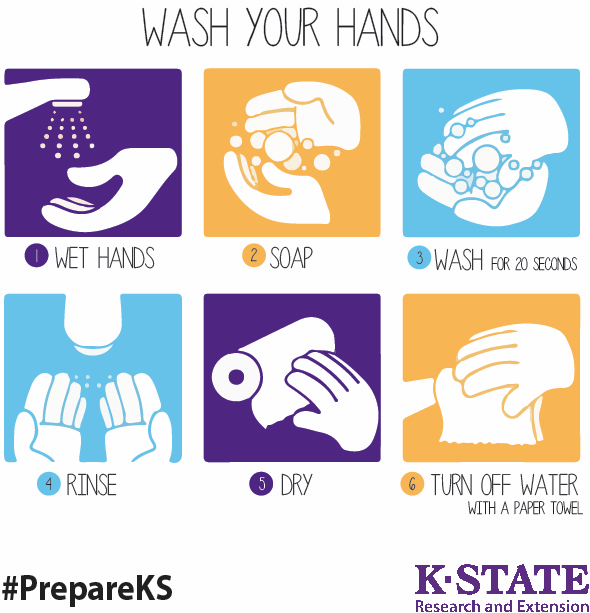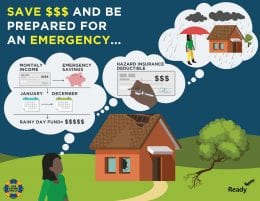This post was written by Londa Nwadike, State Extension Consumer Food Safety Specialist for Kansas and Missouri. It was originally published in September 2016
Handwashing is very important for our health, and is especially important after touching foods that have been contaminated with flood water. Some researchers estimate that handwashing reduces the number of people who get sick with diarrhea by 31%. The following steps should be taken to wash hands properly:
- Wet your hands with clean, running water (warm or cold), turn off the tap and apply soap.
- Lather your hands (including the backs of your hands, between your. fingers, and under your nails) by rubbing them together with the soap.
- Scrub your hands for at least 20 seconds.
- Rinse your hands well under clean, running water.
- Dry your hands using a clean towel or air drying.





